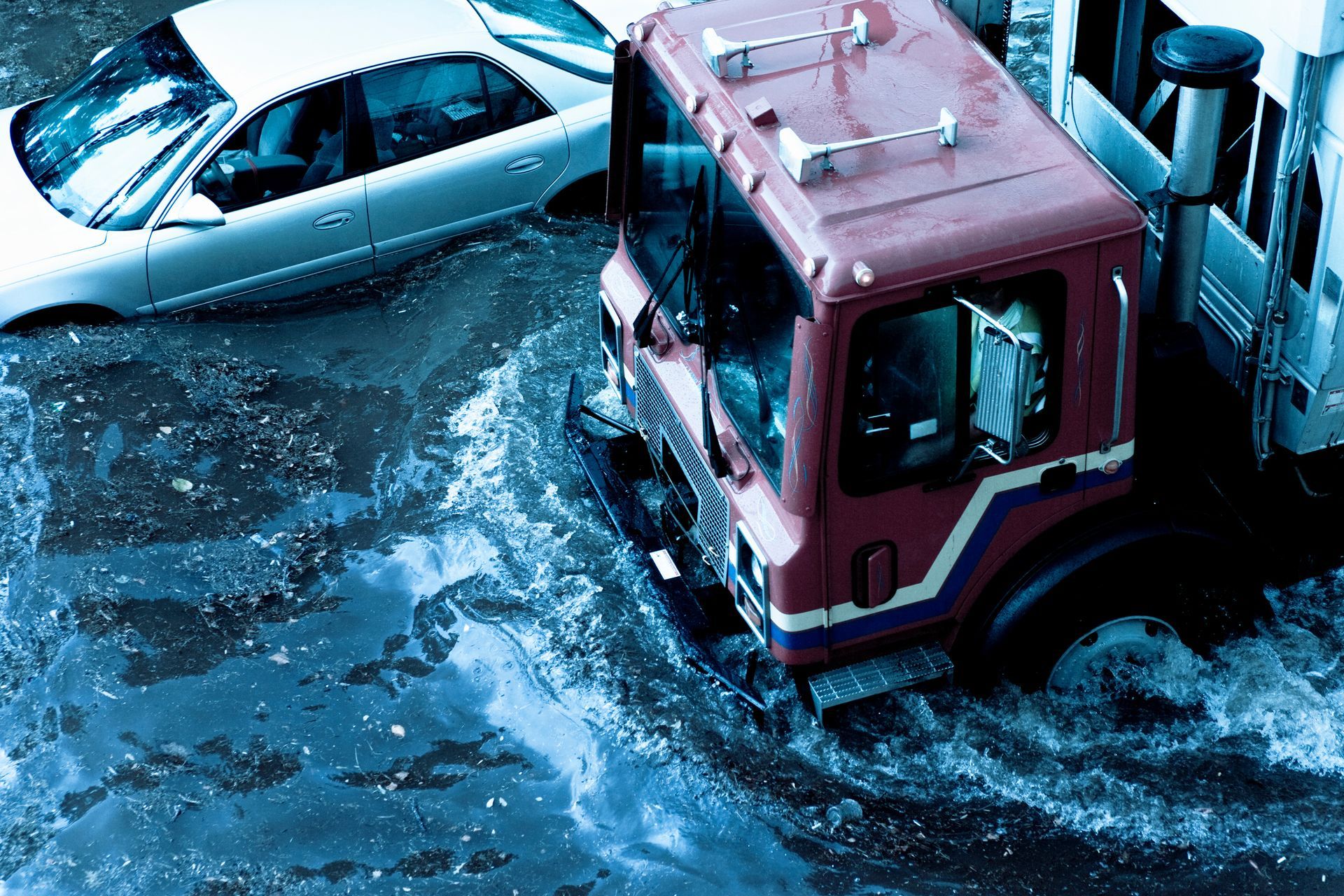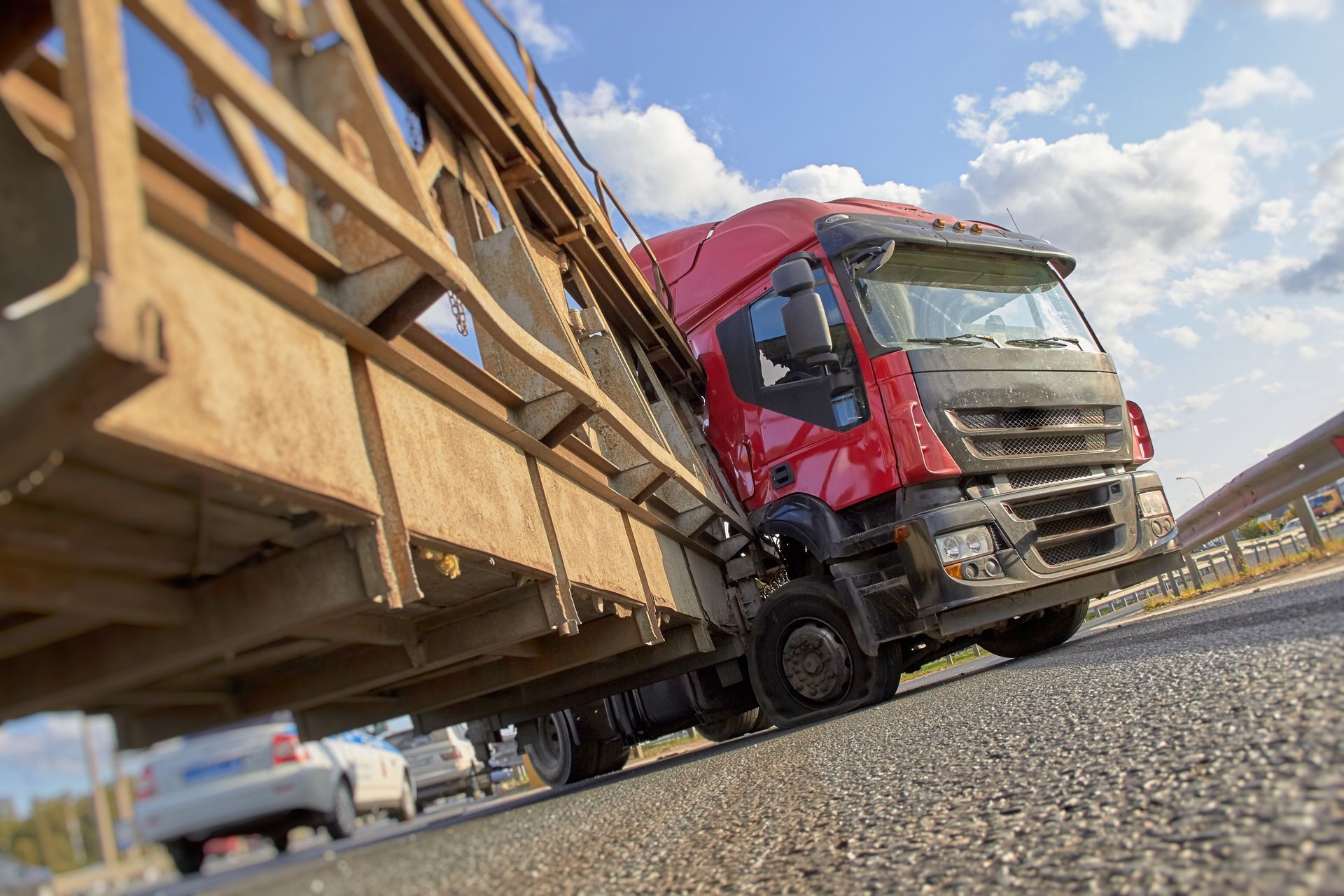How Weather Contributes to Truck Accidents & Legal Recourse

Weather conditions play a significant role in road safety, and when it comes to large trucks navigating through challenging weather, the risks can escalate. In this blog, we will delve into how adverse weather conditions contribute to truck accidents and explore the legal recourse available to victims seeking compensation for their injuries.
Reduced Visibility
One of the primary challenges posed by adverse weather is reduced visibility. Whether it's heavy rain, thick fog or a snowstorm, these conditions can impair a truck driver's ability to see other vehicles on the road. In such instances, accidents are more likely to occur due to delayed reactions and difficulty in assessing the surroundings accurately.
Slippery Roads
Rain, snow and ice can turn roads into slippery surfaces, making it challenging for trucks to maintain traction. When a truck loses traction, the risk of skidding or jackknifing increases, leading to potential accidents. In these cases, determining liability can be complex, as it may involve analyzing the truck driver's actions, the condition of the road and whether appropriate precautions were taken.
Braking Distance Challenges
Adverse weather conditions affect a truck's braking distance, which is crucial for preventing collisions. In rain or snow, it takes longer for a truck to come to a complete stop. If a truck driver fails to adjust their driving speed to account for these conditions, they may be held responsible for accidents resulting from their inability to stop in time.
Hydroplaning
Hydroplaning is a significant concern when roads are wet. This occurs when a layer of water separates the tires from the road surface, leading to a loss of control. Trucks are particularly susceptible to hydroplaning due to their size and weight. Victims of accidents caused by hydroplaning may have legal recourse against the truck driver and potentially the trucking company if it can be shown that proper maintenance and safety measures were neglected.
Windy Conditions
High winds can pose a serious threat to the stability of trucks, especially those with large trailers. Wind can cause a truck to sway or even tip over, creating hazardous conditions for both the truck driver and other motorists. Establishing liability in accidents caused by windy conditions may involve examining whether the truck driver should have been aware of the weather forecast and taken appropriate precautions.
Limited Maneuverability
Trucks have limited maneuverability under the best of circumstances, and adverse weather exacerbates this limitation. In conditions such as heavy snow or ice, trucks may struggle to navigate turns or avoid obstacles, increasing the likelihood of accidents. Determining whether the truck driver took reasonable precautions and adjusted their driving behavior in response to these limitations is crucial in assessing liability.
Visibility of Road Signs and Signals
Adverse weather conditions can obscure road signs and traffic signals, making it challenging for truck drivers to navigate safely. Failure to notice important signs, such as speed limits or warning signs, can contribute to accidents. Victims may have legal recourse if it can be demonstrated that the truck driver failed to adhere to posted signs or signals due to weather-related visibility issues.
Mechanical Failures Exacerbated by Weather
Extreme weather conditions can put additional stress on a truck's mechanical components, increasing the risk of mechanical failures. Brake failure, tire blowouts or engine malfunctions can lead to accidents, and victims may have legal recourse if it can be shown that the truck's maintenance was inadequate for the prevailing weather conditions.
Legal Recourse for Victims
After a truck accident influenced by adverse weather conditions, victims may pursue legal recourse to seek compensation for their injuries and damages.
Seeking compensation involves understanding the intricacies of personal injury law and the specific circumstances surrounding the accident. It's crucial for victims to consult with a seasoned personal injury attorney experienced in truck accidents. These legal professionals can provide invaluable guidance, assess the strength of the case and develop a strategic plan for pursuing maximum compensation. With their expertise, victims can better comprehend their rights, potential legal avenues and the steps necessary to build a compelling case against the responsible parties.
Negligence
To establish liability, victims must often prove that the truck driver or the trucking company was negligent in their actions. Negligence may include failure to adjust speed for weather conditions, inadequate maintenance of the truck or insufficient training of the driver to handle adverse weather.
Violation of Safety Regulations
Trucking companies and drivers are subject to various safety regulations imposed by federal and state authorities. If it can be demonstrated that these regulations were violated and contributed to the accident, it strengthens the victim's case. For example, failure to use tire chains in snowy conditions or exceeding weight limits in adverse weather could be considered violations.
Gathering Evidence
Collecting evidence is crucial in establishing the link between adverse weather conditions and the truck accident. This may involve obtaining weather reports, eyewitness testimonies and data from the truck's black box, which records information about the vehicle's speed, braking and other relevant factors.
Consultation with Experts
In complex cases involving adverse weather, consulting with accident reconstruction experts and meteorologists can provide valuable insights. These professionals can help recreate the conditions at the time of the accident and offer expert opinions on how the weather may have contributed to the collision.
Let ATL Elite Connect You With a Top-Notch Personal Injury Lawyer Today
Navigating the legal landscape after a truck accident influenced by adverse weather conditions requires a comprehensive understanding of both the trucking industry regulations and the complexities of weather-related factors. Victims have the right to seek compensation for their injuries and damages, and with the right legal representation, they can pursue a path to justice. As the roads become increasingly hazardous in adverse weather, it is essential for truck drivers and their employers to prioritize safety measures and adhere to regulations to prevent avoidable accidents and the subsequent legal consequences.
At ATL Elite, our commitment is to offer unparalleled resources to those affected by truck accidents. Explore our roster of attorneys to connect with a nearby legal professional well-versed in handling truck collisions. Find the legal representation you require and initiate the support you need without delay.
ATL ELITE LAWYERS
All Rights Reserved | ATL Elite Lawyers


